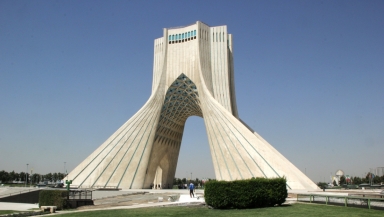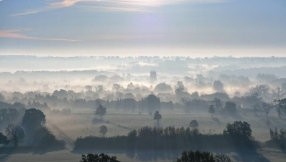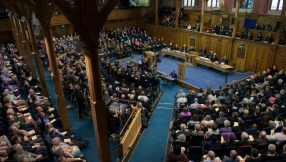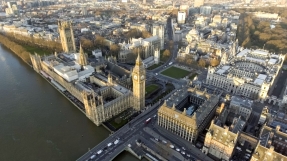
A UN report has warned that religious minorities are being targeted in Iran's crackdown on women's rights protests.
Protests have continued since the death two years ago of 22-year-old Jina Mahsa Amini in police custody in after her arrest by Iran's morality police for allegedly breaking hijab rules.
An advocacy paper published by the UN's fact-finding mission to the country said that "crimes against humanity" were being perpetrated and that Kurd and Baluch ethnic and religious minorities have been the victims of a "disproportionate" crackdown by the government in response to the protests.
Abuses reported in the paper include unlawful deaths, extrajudicial executions, unnecessary use of lethal force, arbitrary arrests, torture, rape, enforced disappearances and gender persecution.
The report also highlighted the effect of government repression on children from ethnic and religious minorities, including a Christian couple denied the right to adopt a child because of their religious beliefs.
A report last year by Open Doors, Article 18 and other religious freedom groups warned that Christians, especially converts, were suffering from an increase of persecution in the wake of the protests.
It detailed how at least five people arrested over their alleged involvement in the protests were hit with the additional charge of "apostasy" after the authorities discovered that they were converts to Christianity.
Henrietta Blyth, CEO of the charity Open Doors UK & Ireland, is calling for an international response to protect Iran's religious and ethnic minorities.
"The recent UN paper starkly illustrates the severe and targeted repression faced by religious minorities in Iran," she said.
"These findings resonate deeply with the plight of Christians in the region, who continue to endure intensified persecution for their faith.
"Open Doors stands in solidarity with all those suffering under these injustices. We urge the international community to take immediate action to protect these vulnerable populations and uphold their fundamental human rights."













